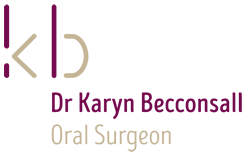Your Anaesthetic Options
There are three basic treatment modalities. You can be treated just with local anasethetic, intravenous sedation (called IV sedation or TCI sedation) or general anaesthetic.
Part of my role is to help you decide which treatment option is best for you. It is not a case of one size fits all. With experience of over 11 years of being an oral surgeon and having removed over 15,000 wisdom teeth. I can assess your needs both from a clinical and emotional point of view and recommend the best treatment modality for your specific individual circumstance.
I am very lucky to have a close working relationship with my anaesthetist. This is particularly important for patients who have medical concerns or a complex medical history. Together we can plan treatment that is both appropriate and safe.
Local Anaesthetic (LA)
This is the normal dental injections that makes just one part of your mouth ‘numb’. It is called local anaesthetic as it only acts in a small local area. With local anaesthetic you lose sensation only. You still feel vibration and pressure but no sharp pains. For some people this is adequate for any tooth extraction, while for others it is not.
For some people the mouth is a highly sensitive area and although they may not feel any sharp pain the feeling of pressure is most unpleasant making treatment with local anaesthetic very traumatic. For this reason we also offer other treatment modalities such as IV sedation and General anesthetic.
Oral Sedation
Some people ask if they can just take some tablets to make them drowsy. I do not provide this service for a number of reasons. Firstly taking tablets is a very unpredictable way of providing sedation. While it can be calculated on a weight basis it may not provide the level of sedation you require. Often the sedative effect may not happen at all, may happen after you have left the appointment or more dangerously may over sedate you.
Intravenous sedation is a much better and safer alternative.
Intravenous Sedation (IV, TCI)
Intravenous sedation refers to the placement of an intravenous line through which medication is given to relax you. The benefit of intravenous sedation over just taking tablets is that we can give you the exact dosage to give you the desired effect. It is also easily and quickly reversible unlike a tablet. With tablet sedation it will either work adequately, not work at all or work too well which can be very unsafe as there is no quick way of reversing the effect.
There are different methods to sedate you depending on the level of sedation you require. Intravenous (IV) sedation with midazolam or Targeted controlled infusion (TCI).
- IV sedation is a term we usually use for describing sedation with a drug called midazolam. This sedation makes you sleepy and forgetful. For most people they will feel like they have slept through the procedure. They may have some memories of the procedure but these are not distressing memories. While sedated you are carefully monitored by a specialized nurse who makes sure that you are comfortable and safe.
- TCI is a method which involves monitoring the electrical activity of your brain to ensure you are adequately sedated. This a highly specialized technique which gives you a deeper level of sedation. At Fernbrae Surgery we follow the guidelines of the Australia New Zealand College of Anaesthetists when performing this sedation. This means that we have an anaesthetist give you the sedation and we also have a whole back up team including anaesthetic technicians and specialist recovery nurses. This gives you assurance that your comfort and safety is paramount. I hear many people describe TCI as “just like a GA” (general anaesthetic) or “Better than a GA” and even “Safer than a GA”. In my experience the practitioners who tell their patients this do not have access to treat their patients under general anaesthetic. TCI is definitely not a general anaesthetic and while it is a very good treatment option it is not the answer for every situation.
General Anaesthetic (GA)
General anaesthetic is where you are completely asleep for the entire duration of the procedure rather than only being sedated. General anaesthetic procedures are very safe and predictable. Often people will describe a general anaesthetic as being completely “knocked out”.
I use a fully qualified and experienced anaesthetist along with a complete anaesthetic team to provide my patients with the best anaesthetic possible. We fully comply with all recommendations from the College of Anaesthetists.
Most of our patients find the general anaesthetic experience to be very pleasant and easy to recover from. Most people are able to leave about 2 hours following a general anaesthetic and feel quite normal at this stage. I can advise you whether a general anaesthetic is a suitable option for your treatment. All patients who have a general anaesthetic will have a pre-admission appointment the night prior to surgery where they meet with the anaesthetist. We find this an excellent opportunity to come up with an individual treatment pathway for you and your surgery. While the surgical environment is a normal part of our day, for most of our patients it is the first time they are experiencing anything like this and they are understandably nervous. The pre-admission is a great opportunity to meet the team and ask any questions or pass on any concerns.
